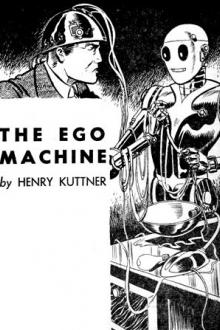The Boy Who Fell from the Sky - Jule Owen (english love story books TXT) 📗

- Author: Jule Owen
- Performer: -
Book online «The Boy Who Fell from the Sky - Jule Owen (english love story books TXT) 📗». Author Jule Owen
It must be some kind of game, he thinks.
He puts the volume back and browses along to the very last book on the very last shelf. Its title is Fin. It’s a thick volume with a blue cloth cover and silver lettering. He stands, opens it, and walks to the table, where he puts it down so he can page through the contents, and skims the chapter titles: The Fall of the West, The Last Days of Silverwood, Evacuation of the Pure, Archives and Refuges, The Forty-Year Walk of Angel Leventis, The Arrival of the Lamplighter, The Kind, Wormwood 2572.
He looks back at the bookshelves and spies something he hadn’t noticed. It’s his book – the one Mr Lestrange was reading when he discovered the beebot, a book with his name on the spine. He goes to the shelf to fetch The Book of Mathew Erlang. Next to his book is another, with Clara’s name. There is also a book of Hoshi Mori, a book of Soren Erlang, a book of Ju Chen.
This is some kind of joke, he thinks. Opening his book, he pauses. Do I want to know? But this is crazy! It’s not real. No one knows what’s going to happen.
He skims through the contents of The Book of Mathew Erlang: Birth. Early Life. Education. Soren Erlang. Hoshi Mori. Elgol. Ju Chen. Clara Barculo. Silverwood. Eva Aslanova. Yinglong. Hathaway. Death. The Bach Society.
Staring for a moment at the second to last chapter title, he goes to page 827. It begins:
On the fourteenth of February 2091, Mathew Erlang delivered his second public lecture concerning Project Yinglong in the auditorium at Silverwood University. It was the greatest day of his career and the last day of his life.
The chapter is long; he’s impatient and hurriedly, clumsily flips through to the end. His hands are shaking.
Stupid, he says to himself. Not real. Not real.
In spite of the fact that Erlang modelled the Yinglong on downloads of his own brain patterns, he perversely neglected to record his own DNA and so it was irretrievably lost . . .
The book literally flies from his hand and slams into the wall. He scrambles to his feet.
That did not happen.
Adrenaline is pumping round his body. In spite of being gripped by cold terror, his rational mind knows he must have somehow lost control of his muscles and thrown the book. He takes a few steps towards it and bends to pick it up.
It moves away from him.
He is at the front door before he knows what has happened, yanking at the lock and the handle. But it is shut firm.
Who locks a door from the inside?
“Mr Lestrange?” he says, louder again.
The silence in the house swallows his words. The empty, still house now seems sinister.
Through the kitchen to the conservatory, picking his way through the hanging bits of blind, he finds the conservatory door and rattles the handle.
Locked as well.
He considers trying to climb through the hole above him, fetches a chair from the kitchen and stands on it, but standing on tiptoes he only just brushes the roof with his fingertips.
He gets down.
It occurs to him to try the Nexus. Perhaps if he logs on to the house network, he might unlock the doors, or summon Mr Lestrange. His Lenz returns a message of “No networks found.” This is impossible in London. The signal from the house should be available, but he can’t even see it, meaning he can’t call Gen Lacey and he can’t even call his mother.
Going through the kitchen drawers to look for the key to the back patio door, he finds cutlery, plates – all gleaming, clean, and new like everything else in the house. He opens the cupboards and the fridge for good measure. There is food, what you would expect for a single man, but there’s nothing going off, nothing mouldy, nothing half-opened. And he realises he hasn’t met a HomeAngel in the house. He goes back into the hallway.
“Mr Lestrange?”
It’s pointless.
The library door looms beside him, but he doesn’t want to go back in there.
There’s only the Darkroom.
He pushes open the door.
On one of the chairs there’s a naked, coverless skullcap. Reasoning that if he connects to Mr Lestrange’s holophone, he’ll be able to get a Nexus connection to get help, he puts the skullcap on, half expecting to be rejected by the authentication system.
Then he’s standing in a long white corridor.
The doors, ceiling, and floor are all white. There is no obvious source of light, but it’s blindingly bright. Turning 360° to see where he came from, there’s nothing but a corridor stretching on, apparently endlessly, and door after door as white as the floor, walls, and ceiling. The door nearest him is locked. So is the next one and the one after that. He tries them all.
Standing in the corridor, he tries to quell the rising panic.
It’s a game, probably a puzzle. I’ve played similar. There’s always an exit from virtual worlds.
Perhaps you have to open two door handles at the same time. Perhaps only the twentieth door you try opens. He tries both of these strategies to no avail.
Think, Mathew. Think.
If he keeps walking, the corridor might bend at some point, or end with an opening door.
Perhaps an object or a menu will appear to tell me what to do next.
Up ahead he notices something that appears to have materialised out of nowhere, something hanging on a wall, a smudge of yellow, the only coloured object in the monotonous white, and he quickens his pace to investigate.
And there it is!
On a peg on the wall, a parachute hangs by one of its shoulder straps, along with some old-fashioned motorcycle goggles. Is he meant to put them on? He studies the door in front of him. As he turns the handle and leans his weight in, he doesn’t expect it to open.
But it does.
Losing his balance, he falls forwards. The instinctive part of his brain responds before he even knows what he’s seeing.
It tries to pull him back.
For one wonderful, timeless, elegant moment he teeters on the edge of the doorframe, the self-preserving animal part of him trying to manipulate muscles to do miraculous things, to fight gravity and pull him back towards the corridor. But it doesn’t work. Gravity wins, and he is falling forward.
As he does, he raises his eyes, and in that unforgettable second he sees the impossible.
Unfolding before him is a landscape so vast it fades at the horizon. A forest, a canopy of trees stretching away in all directions, a muddy brown river shining in the sun, snaking sleepily through the trees. He is thousands of feet above all of this. Or he was.
Now he is falling.
18 Four Days
DAY EIGHT: Thursday, 16 June 2472, Chukotka Autonomous Okrug, Siberia, Russia
Pain. Sharp, piercing pain. Something is biting him, and he wakes suddenly. It is light. He checks his Lenz for the time, but the time’s not there. He has no clock. It feels like he has been asleep only a short while. The sun is blazing bright. He feels the pain again. There’s an ant on his hand. Shaking his wrist, frantically, he knocks it off and examines his skin. There’s a red welt, which he sucks and then spits. There are things crawling on him. Sitting, he sees a line of large red ants marching across his legs, clambering over his ankles, sniffing at him. With disgust, he whacks at them with strands of the vine rope he brought up with him the night before.
He rubs sleep from his eyes and recalls his journey here; the long white corridor, the long fall from the sky over the forest, the astonishing view, the plunge into the deep lake. His lungs are still sore from almost drowning. His skin is burnt from lying in the sun to dry. He has cuts and bruises from trying to climb this tree. He has never played a game as real as this in his life.
Shuffling to the edge of his tree house, he peers out. Between gaps in the foliage, the river bubbles away. Carefully, he slides down the trunk, cursing at his screaming feet; he grasps his walking pole from where he’d left it propped against the tree, and goes to the water for a drink. The river is wide and deep here. It runs flat and steady. Branches and leaves are carried along in the swim, washed from the riverbanks by the storm. His stomach rumbles, empty and churning with hunger.
Last night, as he gathered leaves in the rain, he spied something like bananas. Going back to the plant he broke the leaves from, sure enough, a few feet above his head are small, dull yellow bunches. He yanks on a branch and breaks off a fistful. On the ground, legs crossed, he snaps a fruit away and peels it. It’s not the best banana he’s ever eaten, but it is edible. He bolts the rest hungrily and then goes back to the tree and gathers some more bunches. Grabbing some strips of the bark he used to bind the leaves the night before, he strings the bananas together and hangs them across his shoulder.
He’s no longer hungry or thirsty, and he’s slept some, but he’s tired. Between the gaps in the canopy above him, blue sky. The river is gushing along at his side. The forest is alive with noise. Gripping his stick in his hand, he sets off.
After walking for hours without event, preoccupied by the pain in his feet, he is sitting at the side of the river, eating. The sun is high in a bright blue sky, but there’s also the moon hanging over the forest, huge and low. As he stares at it, he hears a distinct snap.
Something is moving along the bank on the other side. Mathew’s eyes rake along the forest edge, staring into the dark places between the leaves.
It takes him a while, but eventually he sees it. A pair of almond-shaped, green cat’s eyes.
The animal comes further into the daylight. It’s not a breed he recognises. It’s the size of a large dog, powerfully built, with muscular shoulders. Big enough to fell a cow, a horse . . . a human. It is staring right at him. Brazenly. Not at all afraid. There is no doubt at all where it places itself in the food chain in this particular encounter. Its tail flicks ever so slightly. It yawns. It licks its lips. Mathew has never felt like prey before, but he does now and finds the experience extraordinary. He is frozen.
You have to move, he says to himself.
The cat goes to the water’s edge.
It can swim!
But the cat stops at the water. It paces back and forth, sizing the river. It shies away from it. Then it sits and rages in frustration. Its





Comments (0)